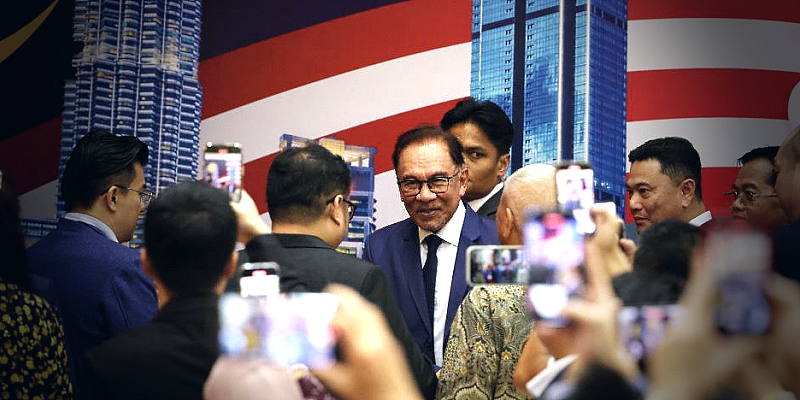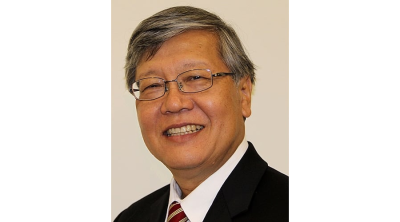It is hoped that from the conventional bilateral trade, the Malaysia-China relationship will be taken to a higher level to include the participation of Chinese companies in Malaysia’s infrastructure development projects, value-added industries, technology transfer as well as enhanced mutual visits and tourist activities among the people of both countries.
Prime Minister is heading a massive delegation with over a hundred members to visit China later this week. This shows how much the country is eager to continue deepening our bilateral trade relationship with China, and getting Chinese companies to take part in major infrastructure projects and private investments in Malaysia.
The four-day visit beginning today will begin with Anwar delivering a keynote address at Boao Forum for Asia in Hainan tomorrow, before flying to Beijing to meet Chinese president Xi Jinping, Li Qiang and Zhao Leji, followed by a dialogue with some 1,000 Malaysian and Chinese business leaders in a “Malaysia-China Business Summit” on Saturday.
Accompanying Anwar are six cabinet ministers (from transport, local government development, foreign affairs, international trade & industry, tourism and science, technology & innovation ministries), along with 300 ACCCIM (The Associated Chinese Chambers of Commerce and Industry of Malaysia) members.
Very obviously, Anwar hopes the visit will secure substantial Chinese support in the development of the country’s transport, technology, trade, tourism and cultural sectors.
During his official visit to Phnom Penh, Cambodia on Monday, the prime minister revealed that he would announce a new representing the government’s “highest commitment” during his China visit later the week.
He said this announcement will “ensure the people’s welfare, education and health.”
We have no idea what sectors will be involved before the announcement is made, but what we can be sure is that it is going to benefit all Malaysians.
Anwar also said that Malaysia also needed to continue strengthening its infrastructure development besides focusing on digitization transformation, while the prerequisite to woo investor remains political stability.
He cited the example of Amazon which has decided to set up a US$6 billion AWS (Amazon Web Service) Region in Malaysia. The move is poised to significantly boost the confidence of other global companies in this country.

Where bilateral trade is concerned, China has been consistently Malaysia’s biggest trading partner for the past 14 years. Bilateral trade reached RM487.1 billion in 2022, or about 17.1% of our total trade for the year.
During the first half of 2022, Chinese companies invested a total of RM48.6 billion in this country, a whopping 55.6% of our total foreign investments.
The East Coast Rail Link (ECRL) is currently one of China’s biggest infrastructure investments in Malaysia, while another major project, the KL-Singapore HSR project which has been stalled, should be included in Anwar’s mid- to long-term development goals, given the fact it will significantly boost cross-border business between the two capital cities.
Take the Jakarta-Bandung high speed rail project in Indonesia for example, the 142.3km, US$6 billion China-invested project started construction in 2016 and is expected to be fully operational later this year.
Sure enough we can emulate the transparent international bidding process of Indonesia for our own HSR project, which is poised to catalyze the enhanced relationship between Malaysia and Singapore and China.
Today, we need to expand public infrastructure development (including high speed rail, flood mitigation, etc.) to drive the participation of local companies, create new job opportunities, enable technology transfer and promote industrial upgrading.
More and more Chinese companies have been relocating their production bases and regional headquarters to Malaysia, including those in electronics, machinery, chemical industry and manufacturing.
That said, we also need investments in high technology, clean energy, digital economy, e-commerce, 5G, EV, renewables and other sectors. China’s ministry of commerce has earlier agreed that these are the key areas of cooperation between our two countries.
Where tourism is concerned, minister Tiong King Sing hopes the two countries will implement visa-on-arrival scheme in future to lure more Chinese tourists to this country.
In 2019, China contributed as many as 3.11 million tourist arrivals to Malaysia, each spending an average of RM5,000. Besides wooing more Chinese tourists to Malaysia, we can also seek the collaboration of Chinese companies to develop local tourist destinations and relax the requirements for Chinese applicants of the MM2H program.
We have very high expectations from Anwar’s China visit, and we believe the leaders of both countries will seize this unique opportunity to entrench our relationship towards a new milestone of more comprehensive development.
It is hoped that from the conventional bilateral trade, the Malaysia-China relationship will be taken to a higher level to include the participation of Chinese companies in Malaysia’s infrastructure development projects, value-added industries, technology transfer as well as enhanced mutual visits and tourist activities among the people of both countries.
ADVERTISEMENT
ADVERTISEMENT








































